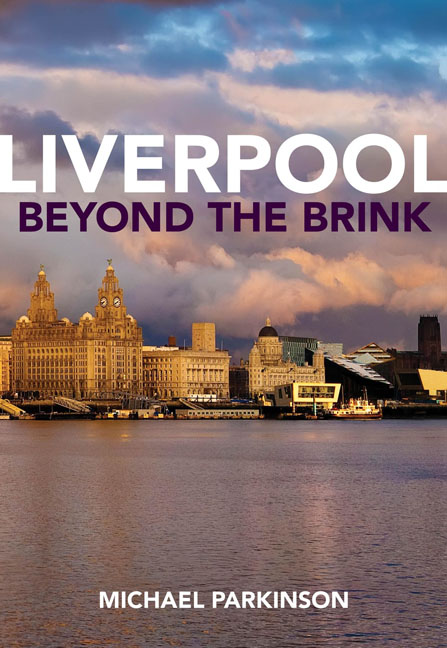Book contents
- Frontmatter
- Dedication
- Contents
- Acknowledgements
- 1 What is the Liverpool story and why does it matter?
- 2 Liverpool goes on – but pulls back from – the brink, 1973–88
- 3 Liverpool begins to become normal, 1988–98
- 4 The rise of the aspiring premier European city, 1998–2010
- 5 Continuing ambition in an age of austerity, 2010–19 99
- 6 The state of Liverpool's economy today
- 7 Liverpool beyond the brink: what are the lessons and what is to be done?
- Index
4 - The rise of the aspiring premier European city, 1998–2010
- Frontmatter
- Dedication
- Contents
- Acknowledgements
- 1 What is the Liverpool story and why does it matter?
- 2 Liverpool goes on – but pulls back from – the brink, 1973–88
- 3 Liverpool begins to become normal, 1988–98
- 4 The rise of the aspiring premier European city, 1998–2010
- 5 Continuing ambition in an age of austerity, 2010–19 99
- 6 The state of Liverpool's economy today
- 7 Liverpool beyond the brink: what are the lessons and what is to be done?
- Index
Summary
By the late 1990s Liverpool was closer to its leadership's aspiration to be a normal city. At this time a number of factors combined to improve its prospects of further progress. First, a New Labour government was elected in 1997 with a commitment and the capacity generated by an economic boom to increase public expenditure, tackle social deprivation in UK cities and address regional inequalities. Secondly, Liverpool's politics changed. The Labour group that had run the city for fifteen years was dramatically thrown out of office in 1998, just a year after a Labour government had been elected. The Labour group and leadership had run out of ideas and energy. The new Liberal Democrat administration took office with a very different, ambitious plan for Liverpool, to make it a premier European city, with the city centre as a key economic driver. Thirdly, there was a significant attempt to reorganise and make the local authority a modern efficient administration. Fourthly, the focus on the city centre was strengthened by the creation in 2001 of a city centre regeneration agency, Liverpool Vision. Finally, in 2003 Liverpool won and successfully delivered in 2008 the European Capital of Culture. These factors all underpinned Liverpool’s renaissance.
During this ‘golden age’ for the city a Liberal Democrat administration successfully exploited the New Labour government's commitment to cities, the revived private-sector interest in city centre investment and large amounts of national and especially European funding to make dramatic physical, economic and cultural changes that dragged Liverpool into the mainstream of national and European cities. At that time in 2001 I wrote that even for a place that had turned many corners, there was evidence that Liverpool was putting its bad old ways behind it as it attempted to become a leading European city.1 In a Celtic city that could legendarily provoke an argument in an empty room, there were signs that peace had broken out. The politics were much improved. The public sector was talking to the private sector. Even the government no longer treated the city as a pariah.
Changing local authority performance and purpose
The first step in the process was that the city council began to get its act together. The continuity provided by a substantial majority for the Liberal Democrats and a leader with a clear vision of where he wanted to take the city helped.
- Type
- Chapter
- Information
- Liverpool Beyond the BrinkThe Remaking of a Post-Imperial City, pp. 77 - 98Publisher: Liverpool University PressPrint publication year: 2019



